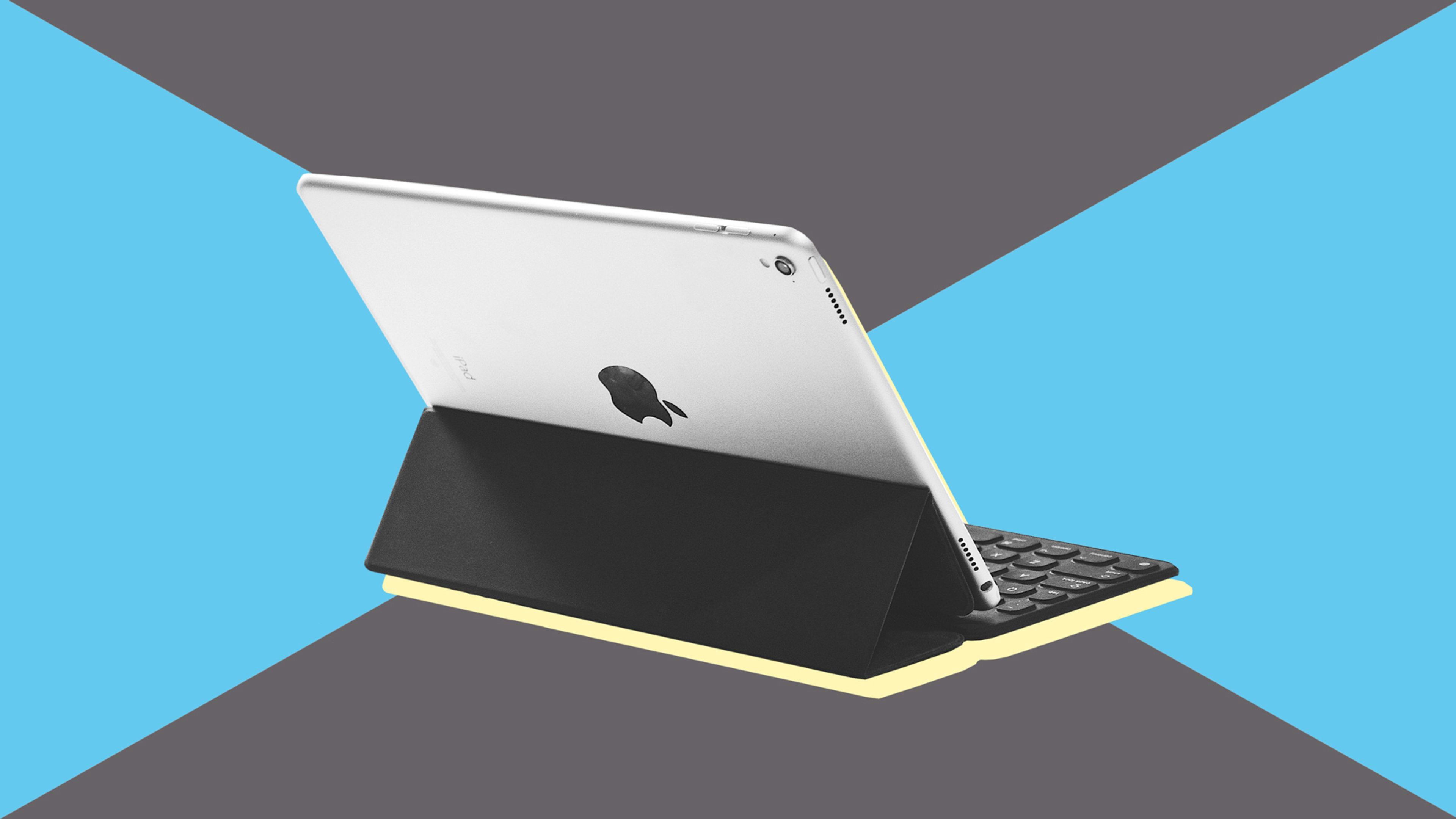In April 2010, when the first iPad went on sale, I woke up at 4:30 a.m. and was fourth in line at my local Apple Store to buy one. But once I had it in my possession, I couldn’t quite figure out what to do with it, other than read comic books.
It wasn’t until the fall of 2011 that I stuck an iPad 2 inside a keyboard case and started using it like a newfangled sort of laptop. Once I did, I quickly found it becoming my primary computing device. And I’ve stuck with iPads ever since—including the 12.9-inch iPad Pro, outfitted with Apple’s Smart Keyboard Folio, that I’m using to write this.
A lot of what keeps me partial to the iPad is the same stuff I liked back in 2011. iPad apps tend to have fresher interfaces and less cruft than ones written for older operating systems, letting me focus more of my attention on the work at hand. I spend less time on the drudgery of maintaining a computer, such as rummaging around for files and performing software updates. Even the fact that I can buy an iPad with built-in LTE wireless internet—an option that’s rare among Windows PCs and nonexistent for Macs—makes me more productive.
It’s also helped that Apple’s vision of where the iPad should go has largely synced up with mine. With its big screen, potent processor, and Pencil stylus, the current iPad Pro is pretty much the powerful, versatile iPad I was dreaming about nearly a decade ago. And by renaming the iPad version of iOS as iPadOS, Apple has doubled down on its commitment to building features designed with iPad power users in mind, such as iPadOS 13’s desktop-class Safari browser.
A curiosity no more
One thing that’s changed a lot about the iPad since I went all in on mine is how the rest of the world reacts to it.
Back in 2010 when the iPad was brand new, pundits knowingly explained that it was fine for content consumption—watching a movie, say, or reading an e-book—but impractical for creation. And indeed, for the first few years that I was a happy iPad user, I was a subject of wonder, skepticism, and, occasionally, outright derision. When strangers approached my table at Starbucks, I knew it was because they wanted to ask me about my iPad/keyboard setup. I’d engage in Twitter sparring matches with cynics who contended that no serious person would use an iPad for workplace productivity. (My example proved that I wasn’t a serious person, not that the iPad was a useful tool.)
Today, when I use my iPad as a laptop replacement on airplanes, in coffee shops, and at press conferences, I’m most often surrounded by people using more conventional notebook computers. But it’s rare for anyone to notice I’m using an iPad and comment on the fact. That’s because computing has become far more heterogeneous than it was a decade ago. Different people choose classic Windows machines or more avant-garde ones or MacBooks or Chromebooks or phablets or iPads—or even the occasional Android tablet. And for the most part, they all work, and work together.
Sure, people still argue over the viability of the PC and whether the iPad and other new-wave gadgets killed it. (Here’s a recent piece arguing that the PC is dead, and another that says it’s just fine.) To me, the whole debate misses the most important point. A PC is a personal computer, and a personal computer is any digital device you use to create, collaborate, and communicate. I find that I can perform all three tasks most efficiently on my iPad. I’m glad we finally got to an era where that just makes me a tiny bit of an outlier, not a freak.
Recognize your brand’s excellence by applying to this year’s Brands That Matter Awards before the early-rate deadline, May 3.
